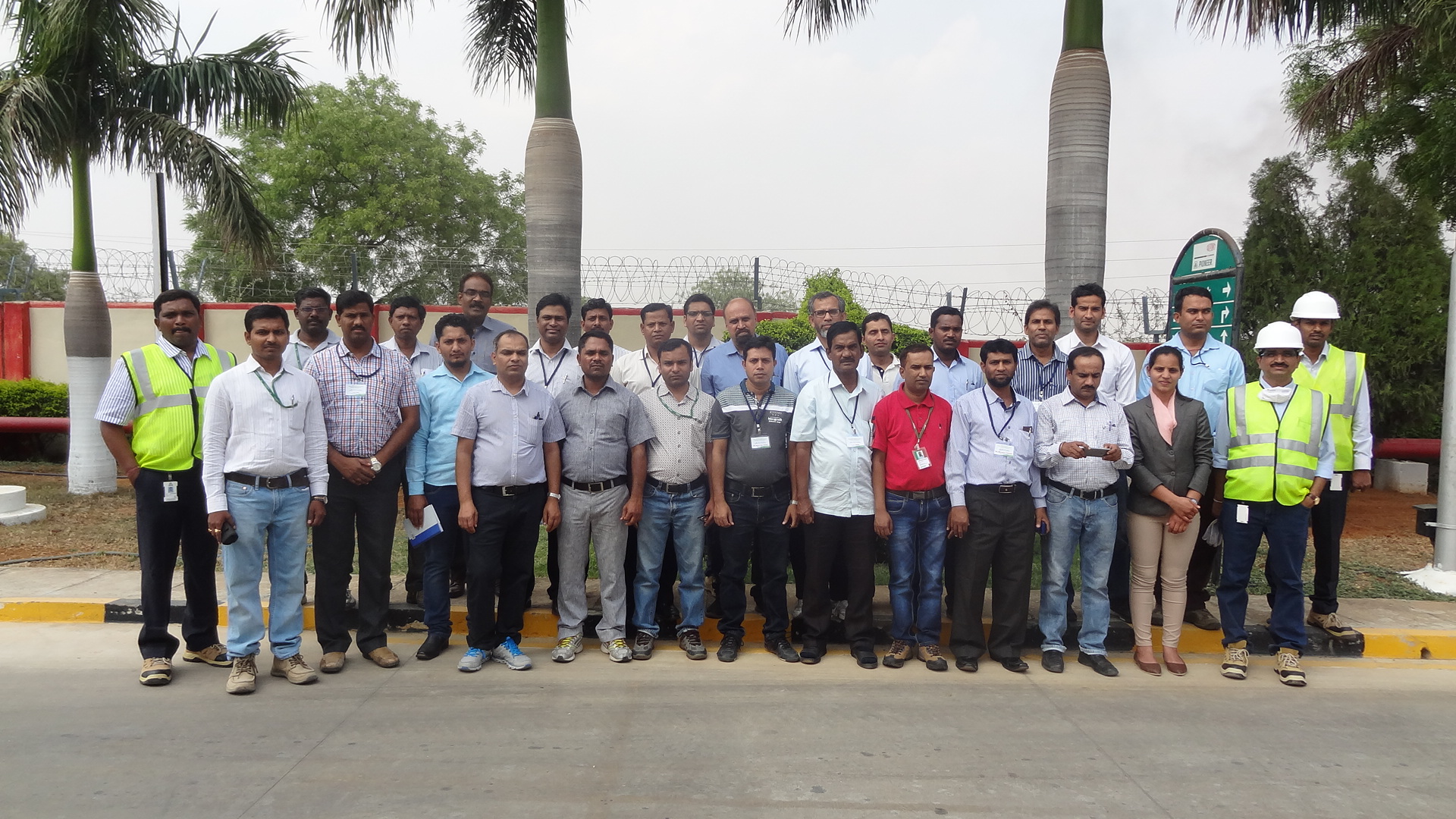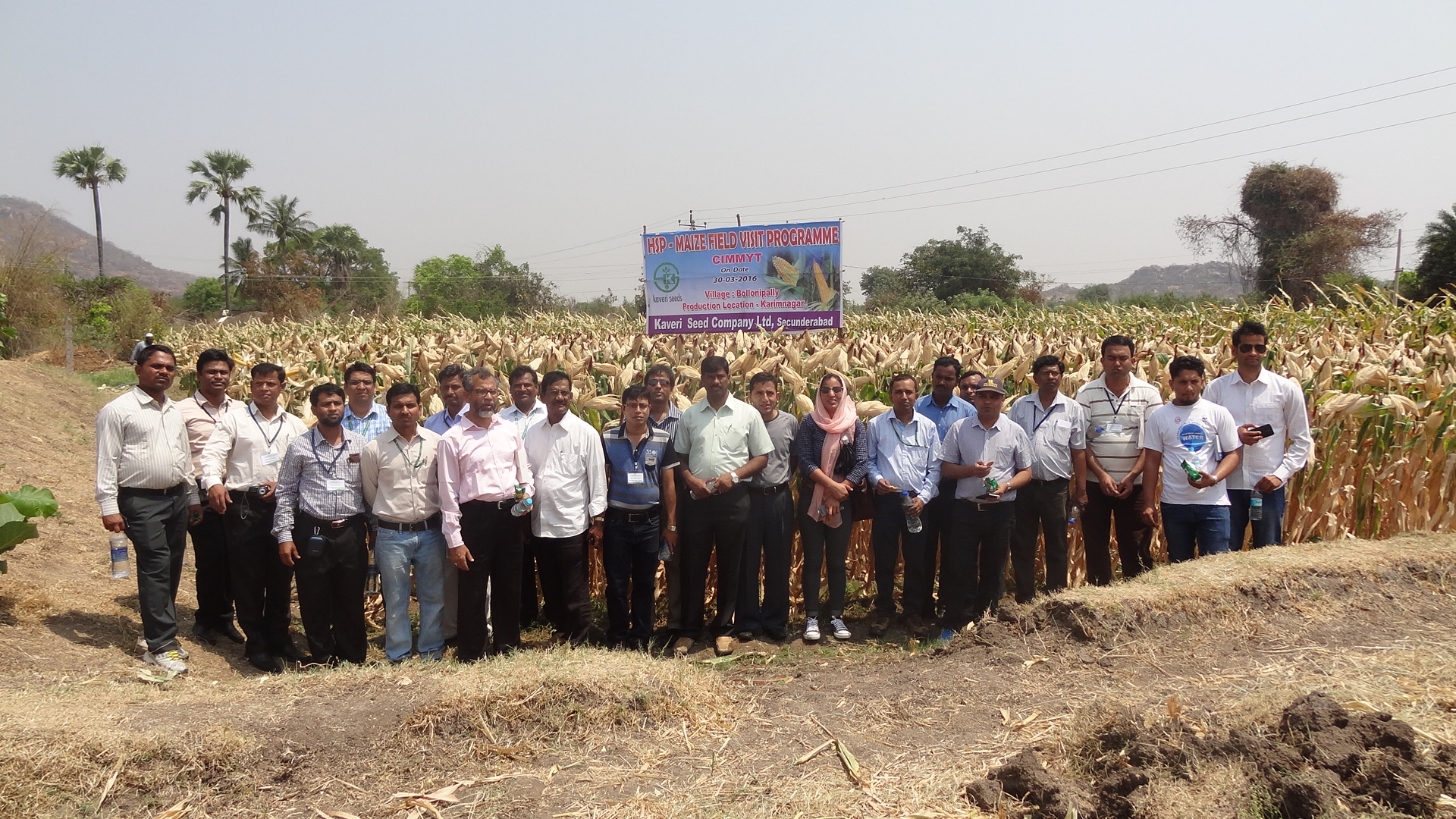HYDERABAD, INDIA — A training course on maize seed production and seed business management was organized by CIMMYT and seed companies Pioneer Hi-bred and Kaveri Seeds from 28-30 March, 2016. The training was held as part of the CIMMYT’s efforts to connect several public and private sector agricultural research institutions in South Asia.
South Asian farmlands have been increasingly experiencing climate change-related weather extremes. If current trends persist until 2050, major crop yields and the food production capacity of South Asia will decrease significantly – by 17 percent for maize – due to climate change-induced heat and water stress. In response to this situation, CIMMYT with support from the United States Agency for International Development and partners are developing heat stress-resilient maize for Asia.

The course aimed to strengthen the capacity of partner institutions – particularly small-and-medium enterprises and national agricultural research systems in South Asia – to expand their maize seed production processes and increase uptake of heat-resilient maize hybrids in stress-prone areas. More than 20 participants from partner institutions participated in the course including breeders, seed production specialists and seed business specialists from commercial seed companies, including Syngenta, DuPont Pioneer, Advanta, J.K. Seeds, CIMMYT and the International Crops Research Institute for the Semi-Arid Tropics.
“Public-private alliances are critical to address complex issues such as heat stress and the development and deployment of heat stress-resilient maize in different regions of South Asia,” said P.H. Zaidi, CIMMYT’s Heat Stress Tolerant Maize for Asia (HTMA) project leader and senior maize physiologist. Zaidi also presented HTMA updates and listed the first variety releases licensed in 2015 to various partners for deployment.
Selvarajan Venkatesh, DuPont Pioneer senior maize breeder, gave a talk on commercial plant breeding and its business perspective with respect to sustainability and foundation for global food security. Venkatesh elaborated on how modern sophisticated hi-tech tools and interactions with multidisciplinary departments changed the face of present plant breeding. Nagesh Patne, CIMMYT seed system project Scientist, discussed the importance of seed production research and the optimization process of the cost of goods of seeds. Various aspects of plant characterization for seed production feasibility were also discussed during this meeting.

Other topics including maintenance breeding, production workflow, hybrid seed production, post-harvest management of seed lots and seed quality control were also discussed at the training. Presenters included A.R. Sadananda, CIMMYT, Satish Hegde, Advanta Seeds Pvt. Ltd., Ramana Rao, G.K. Seeds, S. Sudhakar Reddy, Field Crops Lead, Advanta India and R. Nanda Kumar, product quality and control manager with Syngenta India.

 Capacity development
Capacity development